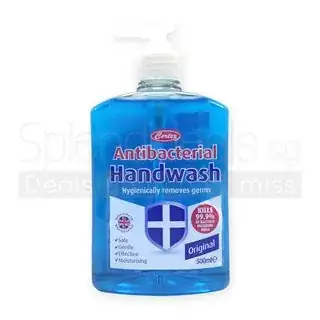My handwash liquid states that it kills 99.9% of bacteria. This usually comes with a disclaimer at the back: "based on laboratory tests".
First of all, if I make a handwash, I would certainly like it to have this attribute too. One way is to lie and simply add this (now) ubiquitous phrase (which probably nobody cares anymore). Alternatively, I would actually perform some tests. Yet, these tests do not need to be peer reviewed in any sense, and hence I just need some basic, quick test that can be designed to prove the point.
I doubt these tests are actually carried out. There is no incentive for companies to do so, probably because very few consumers really care about this. In my opinion the 99.9% (instead of 100%) is just a way for these companies to avoid any legal consequence for cases in which some bacterias are not removed by the product.
Maybe some of you do know more about this? Is this just unscientific advertising?
